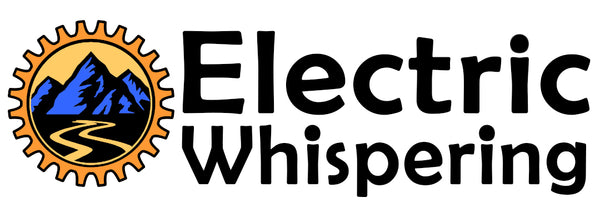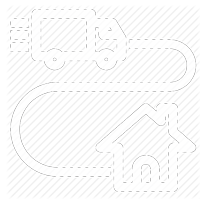Electric bikes come in many styles, but two of the most popular for everyday riders are fat tire e-bikes and city commuter e-bikes. Both offer electric assist, comfort, and versatility—but they serve different purposes. If you’re deciding between the two, this guide will help you choose based on how and where you plan to ride.
We’ll compare features, comfort, performance, and practical use so you can confidently pick the right e-bike for your lifestyle.
1. What Makes Fat Tire E-Bikes Different?
Fat tire e-bikes are defined by their oversized tires—typically 4 inches wide or more. These bikes are built for versatility and stability, allowing riders to tackle challenging terrain like sand, snow, gravel, or dirt trails.
Key Traits:
-
26"x4" tires for maximum grip and cushioning
-
Often heavier, with more rugged frames
-
High-power motors (750W up to 4000W) for all-terrain performance
-
Front suspension or full suspension for trail riding
Who they’re great for:
-
Riders who want to explore off-road or mixed terrain
-
People looking for more comfort and shock absorption
-
Heavier riders or those needing extra stability
-
All-season commuters in rain, snow, or loose gravel
Quick Take: Fat tire bikes are like the SUVs of the e-bike world—built to handle more, with room to ride wherever.
2. What Sets City Commuter E-Bikes Apart?
City commuter e-bikes are built for speed, efficiency, and comfort on paved roads. They’re typically lighter and more streamlined, with narrower tires (about 1.5–2.5 inches wide) designed for smooth surfaces.
Key Traits:
-
Lightweight aluminum frames
-
Upright riding posture for comfort and visibility
-
Integrated racks and fenders
-
Battery and motor setups optimized for range and road use
Who they’re great for:
-
Urban and suburban commuters
-
Riders using bike lanes and pavement
-
People prioritizing lighter weight and agility
-
Short to mid-range daily travel
Quick Take: City commuters are like a well-tuned sedan—efficient, smooth, and perfect for predictable roads.
3. Comfort: Which Rides Smoother?
Both styles are built for comfort, but in different ways.
Fat Tire Comfort:
-
The wider tires act as natural suspension, absorbing bumps
-
Often equipped with front suspension forks
-
Heavier frame gives a grounded, stable feel
-
Great for trails, potholes, or uneven surfaces
City Commuter Comfort:
-
Lighter frame = easier handling and quicker starts/stops
-
Upright seating for visibility and posture
-
Padded saddles and ergonomic grips
-
Best on flat, paved roads
Verdict:
If your commute involves unpredictable roads, poor pavement, or varied surfaces, fat tires provide more shock absorption. For smooth streets and bike lanes, city bikes ride faster and lighter.
4. Speed & Handling: What’s the Difference?
Fat tire bikes are typically heavier and slightly slower on pavement, while commuter bikes feel zippier and more responsive.
-
Fat Tire Speed: Up to 28mph, but acceleration can feel slower due to tire size and weight
-
City Commuter Speed: Also up to 28mph, but with quicker acceleration and less drag
In tight spaces like urban bike lanes or stop-and-go traffic, commuter bikes are easier to maneuver. Fat tire bikes shine on open trails and wider roads where stability is more important than speed.
Verdict:
Want fast starts, quick turns, and agility? Go commuter. Want power, steadiness, and traction? Fat tire wins.
5. Range: Which Goes Farther Per Charge?
Battery range depends on motor power, terrain, and rider weight—but generally:
-
Fat Tire E-Bikes often have bigger motors and heavier frames, which use more power
-
Commuter E-Bikes are more efficient on pavement and get better mileage
Both bikes often use 48V 15Ah to 21Ah batteries, offering 30–80 miles of range, depending on how much pedal assist or throttle you use.
Verdict:
Commuter bikes tend to go farther per charge on flat roads. Fat tire bikes need more power for rough terrain but can still deliver strong range if used on eco modes.
6. Storage & Portability
This is where commuter bikes usually have the edge:
-
Fat tire bikes are heavier (often 70–80 lbs), bulkier, and harder to carry up stairs or load onto racks.
-
City commuters can be 10–20 lbs lighter, and many offer step-through designs or even folding options.
If you live in an apartment, need to store your bike indoors, or plan to transport it in a vehicle, weight and size may be deciding factors.
7. Cost Comparison
Both types can fall within a similar price range depending on features, but here’s a general breakdown:
-
Fat Tire E-Bikes: $1,500–$2,800+ (often includes upgraded motors and suspensions)
-
City Commuters: $1,200–$2,500 (optimized for value and road performance)
Fat tire bikes may cost more due to added features for trail use and rugged builds. If you’re focused on urban commuting, a commuter bike can often offer great performance at a lower cost.
8. Which One Is Right for You?
Here’s a quick cheat sheet to help you choose:
| Your Priority | Best Choice |
|---|---|
| Off-road capability | Fat Tire E-Bike |
| Daily city commuting | City Commuter E-Bike |
| Comfort on rough roads | Fat Tire E-Bike |
| Portability and storage | City Commuter E-Bike |
| All-season riding | Fat Tire E-Bike |
| Quick, light handling | City Commuter E-Bike |
Still unsure? Many riders say: “Buy for how you’ll ride 80% of the time.” If your primary use is paved roads and commuting, a city e-bike is likely your best match. If you want weekend trail rides or mixed surfaces, fat tires will give you the freedom to roam.
Final Thoughts: Ride What Works for You
The best e-bike is the one you’ll actually ride—and enjoy riding.
Both fat tire and city commuter e-bikes offer comfort, electric assist, and versatility. The difference comes down to how you want to ride, where you go, and what kind of feel you’re looking for. Whichever you choose, you’ll gain freedom, efficiency, and fun on two wheels.
At Electric Whispering, we help you choose based on your real needs—not just specs. Reach out with questions, and we’ll match you with the right e-bike for your everyday adventures.
Explore Both Styles Today
Shop our collection of commuter and fat tire electric bikes. Fast shipping, flexible financing, and friendly support—no pressure, just great bikes.





